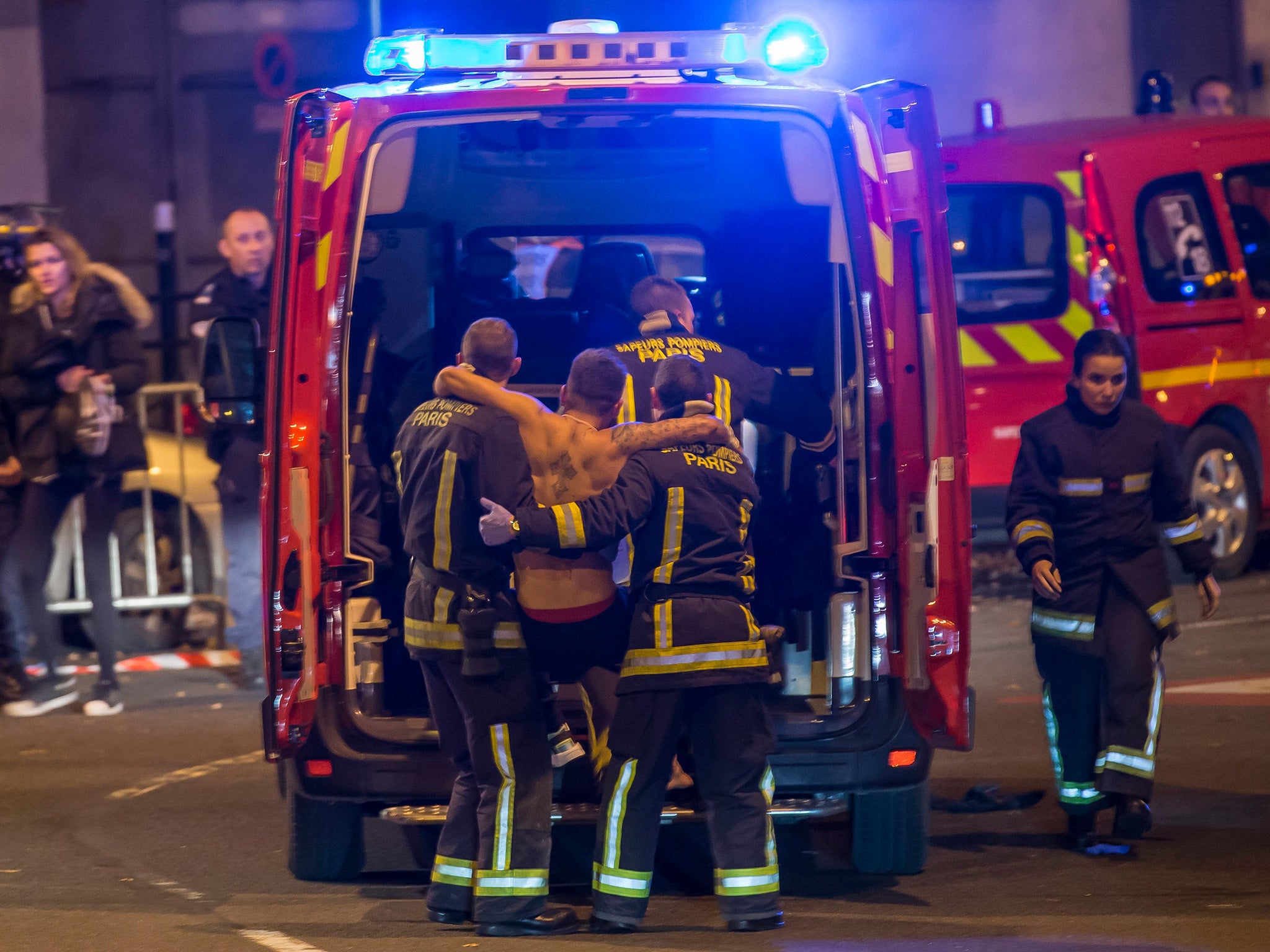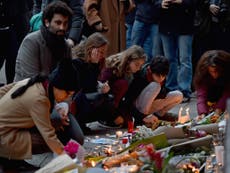Paris attacks: Terror groups glamorise their brutal violence and give alienated young men a sense of importance
We must set about breaking the hold religious extremism is exerting on young men with low self-esteem and a propensity towards violence

The latest massacre in Paris demands a reaction. For most human beings, it is not possible to watch footage of police and passers-by trying to help the wounded without feeling a maelstrom of emotions.
Shock, horror and anger are natural responses but after a year of such atrocities, they come with a sickening sense of helplessness.
None of that helps us to think clearly, which is one of the aims of the perpetrators. The spectacle of young men walking into a concert hall with guns, ready to kill as many of the audience as possible, is intended to resonate far beyond those particular walls. It’s happened at least once before, when Chechen terrorists seized a theatre in Moscow in 2002, resulting in the deaths of 130 hostages during a controversial rescue mission. Terrorists don’t even need to come up with original ideas to have the desired effect.
They want us to feel paralysed by fear, but it’s important to bear in mind that we are not the only spectators they have in mind. If claims that Friday’s massacre was planned by Isis turn out to be correct, it looks like a show of defiance after recent setbacks.
The struggle between Isis and rival groups affiliated to al-Qaeda is a factor, but there is another audience as well: young men who might follow in the footsteps of Mohammed Emwazi, whose reported death in Raqqa, Syria, from an American drone strike dominated the headlines before the Paris attacks.
It doesn’t seem likely that the two events are connected, given that terrorists need time to train, assemble suicide vests and acquire weapons. But the mindset of the Paris killers and Emwazi appears strikingly similar, requiring the kind of cool analysis that was strikingly absent from much of the discussion of his demise.
There was a cartoonish air to reports that he had been “eviscerated” or “evaporated”, as if he had simply disappeared in a flash of flame. Reports from a Raqqa opposition group suggest that what is going on there is unspeakably horrible, with Isis carrying out public murders (let’s not call them “executions”) close to the spot where Emwazi was targeted. Activists described a grisly scene following the drone strike, with body parts strewn across the street. Do we really want our response to these individuals to be as bloody and horrible as the crimes they have committed?
I’m hugely disturbed by the way in which Emwazi’s grandiose self-mythologising was taken at face value from the moment he began appearing in murder videos in August last year. The flippant nickname “Jihadi John” went on being widely used even after his real identity was revealed in February, despite the fact that it’s painfully at odds with his evident enjoyment of torturing and butchering helpless captives. It was still being used after reports of his death last week, along with vile pictures of him brandishing a bloody knife.
There’s a parallel here with serial killers, who are routinely mythologised (Jack the Ripper, Son of Sam, the Zodiac Killer) in British and American popular culture. I remember when football crowds taunted West Yorkshire police with chants of “There’s only one Yorkshire Ripper”, exposing an ambivalent response to men who kill for pleasure.
Ever since the Enlightenment, philosophers, politicians and latterly feminists have struggled with the question of how to deal with extreme violence. The Holocaust provided evidence of the cruelty human beings are capable of in certain circumstances, chief among them being an ideology which removes the restraints that curb sadistic impulses. That is exactly what terrorist organisations such as Isis are doing, using social media to glamorise breathtaking acts of violence. This newspaper took a stand last year against publishing stills from Emwazi’s vile propaganda videos; events have shown it was right to do so.
Islamist terror organisations deliberately encourage young men – some, though not all, with pre-existing psychopathic tendencies – to defy cultural prohibitions on torture, rape and murder. Astonishingly, this process has been almost completely ignored in discussions of previous terrorist attacks, including the one by Cherif and Said Kouachi at the offices of Charlie Hebdo in Paris in January. Some commentators even appeared to blame the murdered journalists for bringing about their own deaths, failing to recognise the power imbalance between people with pens and people with guns.
Power is at the heart of this phenomenon. For the most part, terrorist attacks in western Europe are not being committed by young men, and a handful of women, who have grown up under the Middle East’s brutal dictatorships. The perpetrators are often individuals like the Kouachi brothers, who were born in France and appear to have gone off the rails when their mother killed herself. These young men are offered an identity and a sense of importance by extreme Islamist organisations: who would have heard of Emwazi if he hadn’t become Isis’s most ruthless killer?
The Enlightenment taught us that reason, tolerance and critical thinking are the best guides for human behaviour. It is no accident that France, which was the cradle of these ideas, has been attacked twice in one year. So has Tunisia, where the Arab Spring began five years ago. Once we get past anger, reason dictates that we set about breaking the hold religious extremism is exerting on young men with low self-esteem and a propensity towards violence.







Join our commenting forum
Join thought-provoking conversations, follow other Independent readers and see their replies